Types of Motors: Important Types You Must Know
Introduction
There are many types of motors used in various applications, each with its own unique set of characteristics and advantages. Some of the most common types of motors include AC motors, DC motors, stepper motors, and servo motors. AC motors are used in many applications, including HVAC systems, pumps, and compressors, and they are known for their reliability and low maintenance requirements.
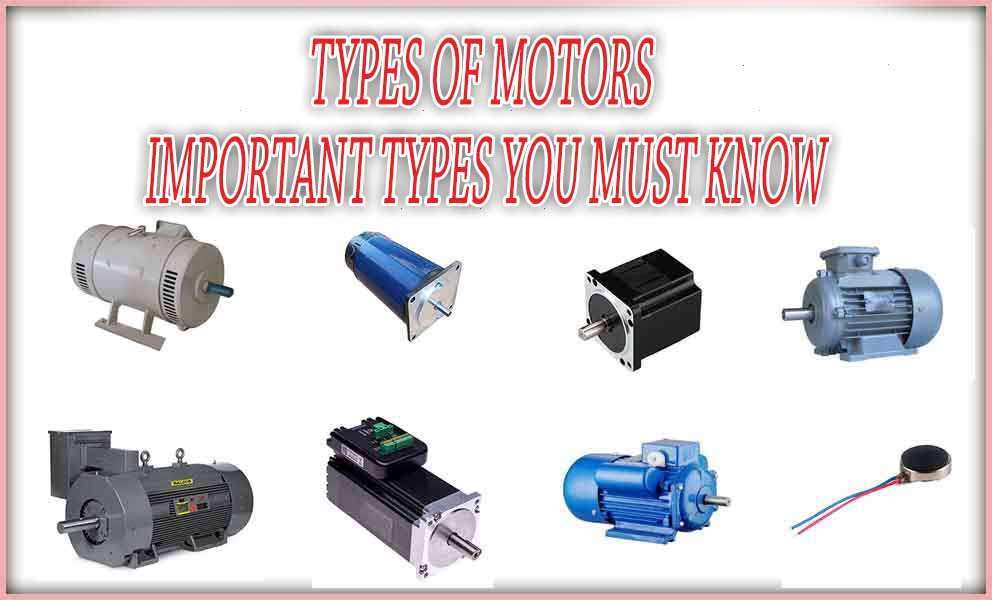
Read More About
When it comes to the world of machines and mechanical systems, various types of motors play a crucial role in powering and driving devices. The types of motors available are diverse and cater to specific applications, ensuring efficient functionality across industries.
One prominent category is the electric motor, which includes subtypes like DC motors and AC motors. DC motors, powered by direct current, offer precise control and high torque, making them ideal for applications such as robotics and electric vehicles.
AC motors, on the other hand, are powered by alternating current and are commonly used in household appliances, industrial machinery, and HVAC systems due to their reliability and affordability.
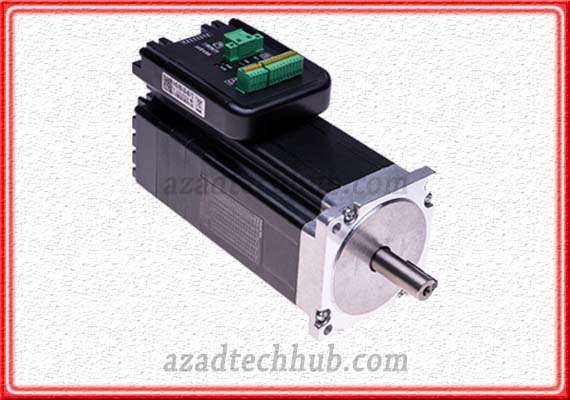
Another significant among types of motors is the internal combustion engine, widely used in vehicles and heavy machinery. These types of motors rely on the combustion of fuel to generate power, with gasoline and diesel engines being the most common examples. Gasoline engines are commonly found in cars and motorcycles, providing efficient power output and smoother operation.
Diesel engines, on the other hand, are known for their robustness and high torque, making them suitable for large vehicles, trucks, and construction equipment. These types of motors have revolutionized transportation and continue to evolve with advancements in hybrid and electric technologies. Understanding the various types of motors enables engineers and designers to select the most suitable option for their specific applications, ensuring optimal performance and efficiency.
DC motors are often used in small applications, such as toys and appliances, and they are known for their high efficiency and ability to operate at low speeds. Stepper motors are commonly used in robotics and automation systems. And are designed to rotate in precise increments, making them ideal for applications that require high accuracy.
Servo motors are often used in industrial applications, such as CNC machines and robotics, and they are known for their high torque and accuracy. Understanding the different types of motors and their applications is essential for selecting the most appropriate motor for a specific application.
When selecting a motor, factors such as operation, voltage, and application should be taken into account. Every motor consists of two crucial components: the field winding and the armature winding. The armature winding acts like a conductor set up inside the magnetic field, whereas the field winding generates a fixed magnetic field.
As a result of this magnetic field, the armature winding consumes energy to generate sufficient torque to rotate the motor shaft. At the moment, the way the two motor coils are coupled to one another—their winding connections—is used to categorize different types of motors in DC.
Types of Motors
There are several types of motors available in the market, each with its own unique features and benefits. Among the electric motors that are most frequently utilized are:
DC Motors
DC motors are the most commonly used electric motors in various applications. They are designed to operate on DC power and are known for their simplicity, reliability, and ease of control. They are widely used in various applications such as robotics, electric vehicles, and industrial machinery.
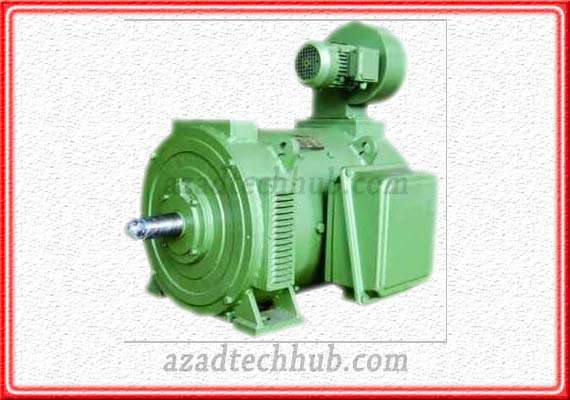
AC Motors
AC motors are most popular types of motors. They are designed to operate on AC power and are widely used in applications such as fans, pumps, and compressors. They are generally more efficient than DC motors and are easier to control.

Servo Motors
Servo motors are used in applications where precise control of the motor is required. They are used in robotics, CNC machines, and automation systems. Because of their high precision and accuracy, servo motors are well known.

Stepper Motors
Stepper motors are widely used in applications where precise control of the motor is required, such as robotics and automation systems. They are known for their high torque and accuracy.
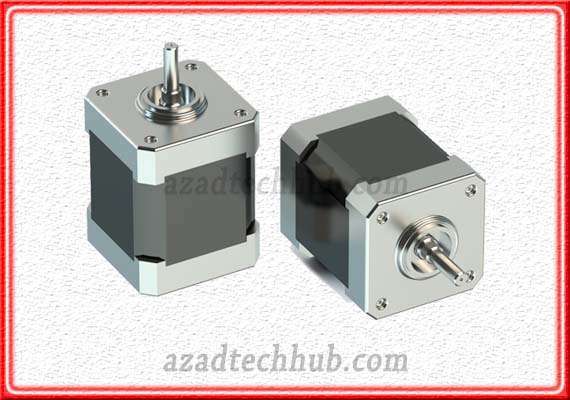
Linear Motors
Linear motors are a special types of motors that is used in applications where linear motion is required. They are used in various applications such as conveyor systems, pick-and-place machines, and high-speed trains.
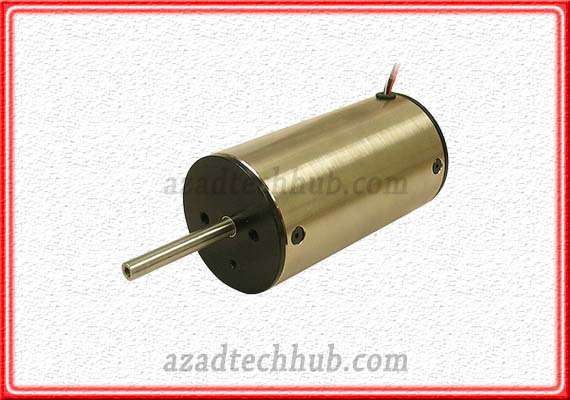
Brushless Motors
Brushless motors are widely used in various applications, including electric vehicles, drones, and robotics. They are known for their high efficiency, low maintenance, and high reliability.
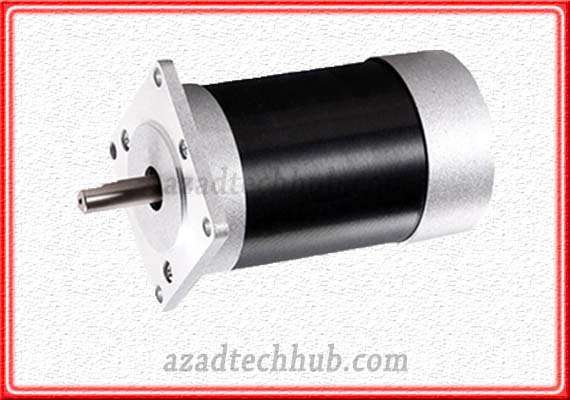
These are some of the most commonly used electric motors in various applications, each with its own unique features and benefits.
Types of DC Motors
Direct current motors, also known as DC motors, are electric motors that use a direct current power source to transform electrical energy into mechanical energy. They are widely used in various applications due to their simplicity, reliability, and ease of control. DC motors have two essential components: the field winding and the armature winding.
The field winding is the stationary part of the motor that produces a magnetic field. It could be an electromagnet or a permanent magnet.
The armature winding is the rotating part of the motor that generates the mechanical energy. It consists of a set of conductors that are arranged in a particular pattern.
There are several types of motors in DC available in the market, each with its unique features and benefits. Some of the most commonly used types of motors in DC are:
DC Series Motor
The field winding and armature winding are coupled together in a series motor. These types of motors provide high starting torque and is used in applications such as electric vehicles, cranes, and hoists.

DC Shunt Motor
The field winding and armature winding are coupled in parallel in a shunt motor. These types of motors provides a constant speed and is used in applications such as fans, blowers, and conveyors.

DC Compound Motor
A compound motor is a combination of both series and shunt motors. It provides high starting torque and a constant speed and is used in applications such as machine tools and pumps.

DC Permanent Magnet Motor
In a permanent magnet motor, the field winding is replaced by a permanent magnet. These types of motors are simple, efficient, and is used in applications such as robotics and toys.

Brushless DC Motor
A brushless DC motor does not use brushes to transmit power between the stationary and rotating parts. It provides high efficiency, low maintenance, and high reliability and is used in applications such as drones, electric vehicles, and medical devices.

DC motors are a widely used types of motors that converts electrical energy into mechanical energy using a direct current power source. They come in various types, each with its unique features and benefits, including series, shunt, compound, permanent magnet, and brushless DC motors.
Types of Motors in AC
AC motors, or alternating current motors, are electric motors that convert electrical energy into mechanical energy using an alternating current power source. They are commonly used in various applications due to their versatility, efficiency, and low maintenance requirements. AC motors have two essential components: the stator and the rotor.
The stator is the stationary part of the motor that produces a magnetic field. It consists of a series of coils that are arranged in a particular pattern. The rotor is the rotating part of the motor that generates the mechanical energy. It consists of a set of conductors that are arranged in a particular pattern.
There are several types of motors in AC available in the market, each with its unique features and benefits. Some of the most commonly used types of motors in AC are:
Synchronous Motors
In a synchronous motor, the stator’s revolving magnetic field and the rotor both rotate at the same speed. It provides high efficiency, low noise, and is used in applications such as clocks, pumps, and fans.

Induction Motor
An induction motor is the most widely used types of motors in AC. It operates by inducing a current in the rotor conductors due to the rotating magnetic field produced by the stator. It provides high reliability, low cost, and is used in applications such as conveyor belts, compressors, and mixers.

Single-phase Motor
A single-phase motor is an induction motor that operates using a single-phase power source. It provides low starting torque and is used in applications such as household appliances, air conditioners, and fans.

Three-phase Motor
A three-phase motor is an induction motor that operates using a three-phase power source. It provides high starting torque and is used in applications such as pumps, compressors, and industrial machinery.

Brushless AC Motor
A brushless AC motor uses a permanent magnet rotor and an electronic controller to control the current in the stator coils. It provides high efficiency, low noise, and is used in applications such as electric vehicles, industrial machinery, and medical equipment.
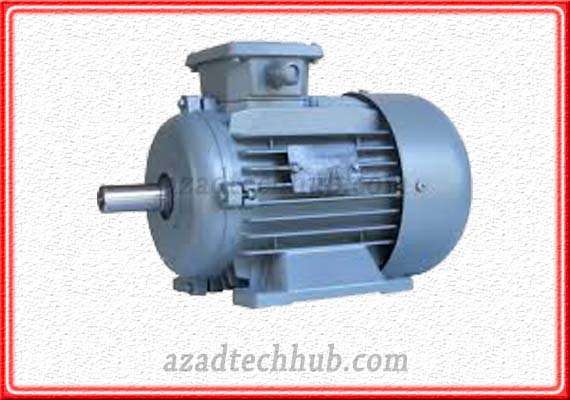
AC motors are a widely used types of motors that converts electrical energy into mechanical energy using an alternating current power source. They come in various types, each with its unique features and benefits, including synchronous, induction, single-phase, three-phase, and brushless AC motors.
Special Purpose Motors
Special purpose motors are a category of electric motors that are designed for specific applications or functions. These motors have unique features and characteristics that make them suitable for a particular task. They are used in a wide range of industries, including automotive, aerospace, medical, and robotics.
Special purpose motors are designed for specific applications or functions and are used in various industries. They come in different types, each with its unique features and benefits, including servo motors, stepper motors, torque motors, linear motors, haptic motors, and gear motors.
There are various types of special purpose motors, each designed for a specific application. Some of the most commonly used types of special purpose motors are:
Servo Motors
Servo motors are high-performance motors that are used for precise control in various applications, including robotics, automation, and manufacturing. They provide accurate positioning and speed control and are often used in CNC machines and robotic arms.
Stepper Motors
Stepper motors are special purpose motors that rotate in small, precise steps. They are used in applications that require precise control, such as 3D printing, robotics, and CNC machines. They offer high torque at low speeds and are ideal for applications that require accurate position control.
Torque Motors
Torque motors are designed to provide high torque at low speeds. They are commonly used in industrial applications that require high starting torque, such as conveyor belts, printing presses, and heavy machinery.

Linear Motors
Linear motors are special purpose motors that provide linear motion instead of rotational motion. They are commonly used in applications that require high speed and precision, such as pick-and-place machines, automated packaging, and semiconductor manufacturing.
Haptic Motors
Haptic motors are special purpose motors that provide feedback to the user through vibration or force. They are used in various applications, such as gaming controllers, wearable devices, and medical devices.
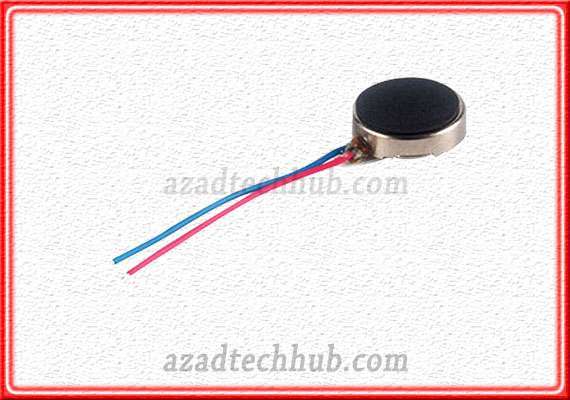
Gear Motors
Gear motors are special purpose motors that combine a motor with a gearbox. They are used in applications that require high torque and low speed, such as robotics, conveyors, and manufacturing equipment.
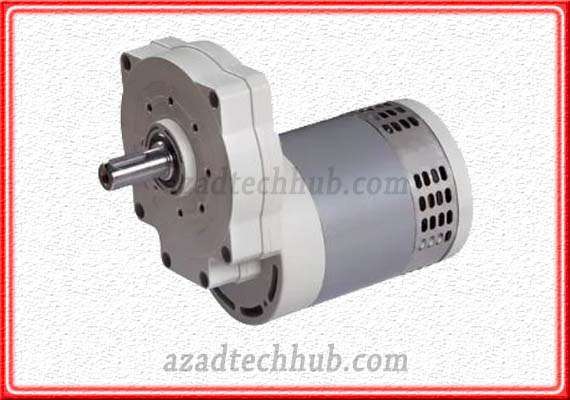
Motors & Pumps Relation
Motors and pumps are closely related as motors are often used to power pumps. A motor is a device that converts electrical energy into mechanical energy, while a pump is a device that moves fluids (liquids or gases) from one place to another.
Pumps are typically driven by electric motors, although other power sources such as engines or turbines can also be used. The motor provides the energy needed to rotate the pump shaft, which in turn drives the impeller or other pumping mechanism to move the fluid.
The efficiency of the pump is closely related to the motor’s performance, as the motor needs to provide sufficient power to overcome friction and other losses in the system. Proper motor selection is essential to ensure that the pump operates efficiently and reliably.
Additionally, pumps and motors are often used together in a variety of applications, including water distribution systems, sewage treatment plants, and industrial processes. Therefore, a good understanding of the relationship between motors and pumps is crucial for anyone involved in designing, installing, or maintaining fluid transport systems.
Motors in Solar Systems
Motors and solar systems are often linked in the context of renewable energy. Solar panels generate direct current (DC) electricity, which can be used to power motors in a variety of applications, such as water pumps, fans, and even electric vehicles.
DC motors are highly efficient, making them ideal for use in solar-powered systems, as they require less energy to operate than other types of motors. Additionally, solar-powered motors have the advantage of being able to operate in remote locations, where access to grid power may be limited or non-existent.
In such cases, solar panels can be used to charge batteries that power the motors during periods of low sunlight or at night. The use of solar-powered motors is becoming increasingly popular as people look for ways to reduce their reliance on fossil fuels and minimize their carbon footprint.
As the technology continues to improve, solar-powered motors are likely to become even more common in a wide range of applications, from residential and commercial buildings to agriculture and transportation.
Protection Components for Motors
There are several components used in protecting motors from damage, including overload relays, thermal protectors, and fuses. Overload relays are designed to protect motors from overloading, which can occur when a motor draws too much current due to mechanical issues or excessive load.
The overload relay is typically placed in series with the motor circuit and is set to trip at a certain current level, thereby protecting the motor from damage.
Thermal protectors are another type of protection component used in motors. These devices sense the temperature of the motor and disconnect the power supply if the temperature exceeds a certain threshold.
Thermal protectors are particularly useful in preventing damage to motors caused by overheating, which can be caused by excessive loads or insufficient cooling.
Fuses are also commonly used to protect motors from electrical damage. Fuses are designed to interrupt the circuit in the event of an electrical fault, such as a short circuit or overload. Like overload relays, fuses are typically placed in series with the motor circuit and are selected based on the current rating of the motor.
In addition to these protection components, it is also important to properly size and select the motor and its associated components for the specific application to minimize the risk of damage. Regular maintenance and inspection of motors can also help to identify potential issues before they become major problems.
What are the main types of motors?
The main types of motors include:
DC Motors: Direct current motors, where the direction of current flow determines the direction of the motor.
AC Motors: Alternating current motors, which include:
Induction Motors: Work based on electromagnetic induction.
Synchronous Motors: Rotate at a constant speed synchronized with the AC power supply.
Brushless DC Motors (BLDC): Similar to DC motors but without brushes.
What is the basic principle behind DC motors?
DC motors operate on the principle of Lorentz force, where a current-carrying conductor placed in a magnetic field experiences a force that causes it to move.
What are the advantages of DC motors?
Some advantages of DC motors include simplicity, ease of speed control, and relatively straightforward control circuitry.
In what applications are AC induction motors commonly used?
AC induction motors are widely used in applications like industrial machinery, fans, pumps, compressors, and household appliances due to their simplicity and reliability.
What is the significance of synchronous speed in synchronous motors?
Synchronous speed is the speed at which a synchronous motor rotates when operated under its synchronous condition. It depends on the frequency of the AC power supply and the number of poles in the motor.
What is the advantage of using brushless DC (BLDC) motors?
What is the purpose of a stepper motor?
Stepper motors are used in applications where precise control of angular or linear position is required, such as in CNC machines, 3D printers, and robotics.
How do servo motors differ from other types of motors?
Servo motors are feedback-controlled motors, meaning they use feedback devices like encoders to continuously adjust and maintain the desired position, speed, or torque.
Can AC motors be used in variable speed applications?
Yes, AC motors, especially induction motors, can be used in variable speed applications by employing devices like variable frequency drives (VFDs) to control the motor speed.
What are the common applications of stepper motors?
Stepper motors are commonly used in applications like printers, scanners, CNC machines, robotics, and automated equipment.
How does a brushless DC motor differ from a brushed DC motor?
In a brushed DC motor, brushes and a commutator are used to switch the direction of current flow. In a brushless DC motor, electronic controllers are used for commutation, resulting in improved efficiency and reduced wear.
Worth Read Posts
Follow us on LinkedIn”Electrical Insights” to get the latest updates in Electrical Engineering. You can also Follow us on LinkedIn and Facebook to see our latest posts on Electrical Engineering Topics.

3 Comments